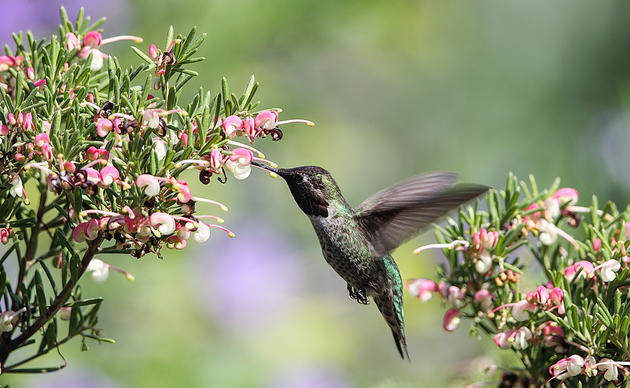A California wind energy facility will be the first in the United States to operate under a new federal permit allowing it to avoid penalties and prosecution in the event of accidental deaths of Golden Eagles and Bald Eagles, the U.S. Fish & Wildlife Service announced last week. The 3,500-acre Shiloh IV Wind Project near Rio Vista has been slated to receive a five-year permit, details of which will not be available for about 30 days.
Golden Eagles and Bald Eagles are among California’s most iconic birds – well worthy of federal protection under the Bald and Golden Eagle Protection Act as well as the Migratory Bird Treaty Act. Audubon California has long stated its preference that eagles not be harmed at wind facilities and, along with Audubon chapters in California, our organization has been highly critical in the past when such deaths were documented at wind sites without any penalties or enforcement. While comprehensive counts don’t exist, it is thought that several hundred protected eagles have died at wind farms across the country.
Because the final permit for the Shiloh IV development won’t be available for 30 days, it is difficult for us to comment on its particulars. We won’t know the specific conditions associated with the permit until then.
Audubon believes that the killing of endangered or threatened avian species should be prosecuted to the fullest extent of the law. We also understand that, as with the Endangered Species Act, the federal law that protects eagles allows for the issuing of permits for accidental killing of eagles, or take, under specific conditions. Our position is that such permits should only be issued if they include a conservation plan that allows for the continued growth of local and regional eagle populations. We also support enhanced monitoring, law enforcement and strict oversight of wind energy projects by the U.S. Fish and Wildlife Service in conjunction with these permits.
The Shiloh IV project is receiving a five-year permit. The U.S. Fish & Wildlife Service recently issued a rule allowing a 30-year permit for eagles, a move that Audubon strongly opposes. Audubon supports five-year permits rather than 30-year permits for wind energy projects because unlike permits under the Endangered Species Act, 30-year eagle permits are not issued in the framework of conservation plans that benefit the species, current laws have not been enforced, and the Service has admitted that it does not have the funding to review 30 year permits.
Audubon supports properly sited wind power as a renewable energy source that helps reduce the threat posed to birds and people by climate change. However, we also advocate that wind power facilities should be planned, sited, and operated in ways that prioritize avoidance then minimization of harm to birds and other wildlife, and we advocate that wildlife agencies should ensure strong enforcement of the laws that protect birds and other wildlife.
Audubon will continue to use the various tools available to ensure that policies regarding the siting of wind projects protect Golden Eagles and other birds, and that paths forward to avoid and minimize impacts on birds are vigorously pursued by developers and the government. In our view, some of those paths forward are indeed working, though clearly we have a long way to go.
Perhaps the most notorious example of eagle mortality associated with a wind farm took place at the Bay Area’s Altamont Pass. Following years of litigation, Audubon chapters, led by the Golden Gate Audubon Society, have succeeded in reducing the mortality of Golden Eagles at the site. Those chapters are continuing to seek ways to reduce mortality at the site even further.
(photo of Golden Eagle by Matt Knoth)
By Garrison Frost
Monthly Giving
Our monthly giving program offers the peace of mind that you’re doing your part every day.




